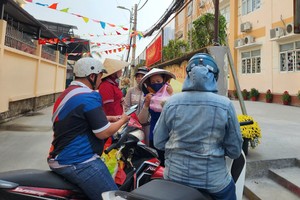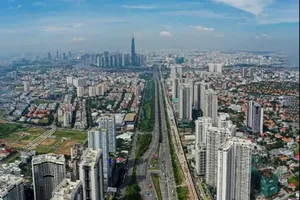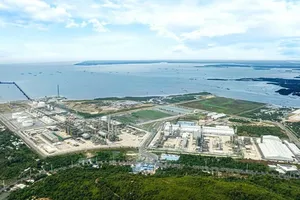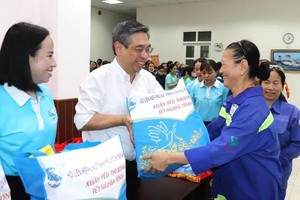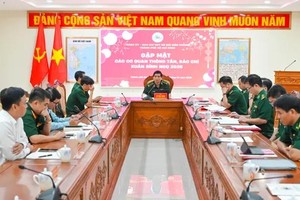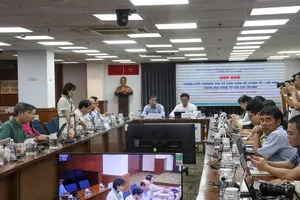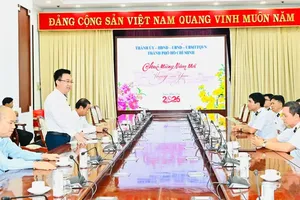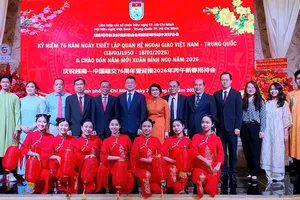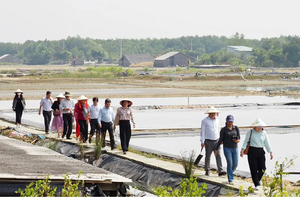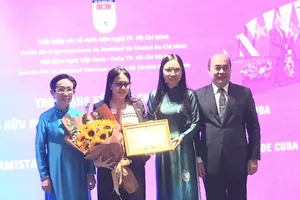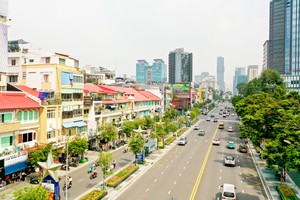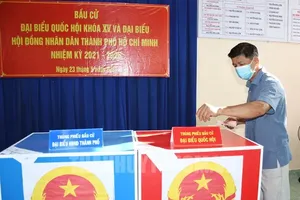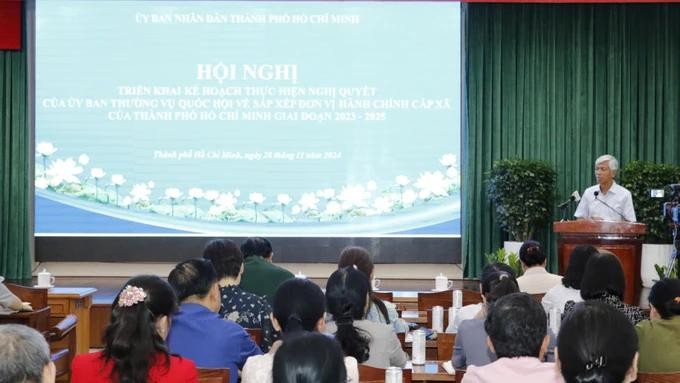
The Ho Chi Minh City People's Committee yesterday convened a conference to initiate the implementation of Resolution No. 1278/NQ-UBTVQH15, a directive from the National Assembly Standing Committee regarding the restructuring of commune-level administrative units within the city limits for the period of 2023-2025.
In accordance with Resolution 1278, Ho Chi Minh City will streamline its administrative structure by consolidating 80 wards across 10 districts (Districts 3, 4, 5, 6, 8, 10, 11, Binh Thanh, Go Vap, and Phu Nhuan) into 41 wards, resulting in the dissolution of 39 wards.
Following this administrative reorganization, Ho Chi Minh City will maintain its existing district-level framework while readjusting its commune-level units to comprise 273 units including 210 wards, 58 communes, and 5 towns.
The newly configured administrative units are slated to commence operations on January 1, 2025.
Upon learning that her ward will be consolidated with Ward 6, resident Huynh Thi Dung in Ward 7 of District 10 advocated it saying that Ho Chi Minh City is executing a significant policy from the Party and State aimed at optimizing the governmental structure and enhancing operational efficiency.
Previously, officials, civil servants, and public employees of the ward have made concerted efforts to disseminate the information of administrative organizations to every households in residential quarters.
During these meetings, residents expressed their apprehensions regarding the alteration of documents, including identification cards and property records.
Ms. Dung hopes that after the arrangement, the staff assigned to continue the work will be well-trained, applying digital transformation in handling administrative procedures as well as updating and supplementing personal documents for people quickly and conveniently.
Chairman Tran Kien Trong of the People's Committee for Ward 3 in District 5 stated that the ward's political system has recently organized numerous informational sessions aimed at educating residents in the ward about the reorganization of commune-level administrative units.
Additionally, the ward leadership has ensured that all cadres, civil servants, and non-professional staff are well-informed, encouraging them to maintain their focus on fulfilling the socio-economic development goals of the locality.
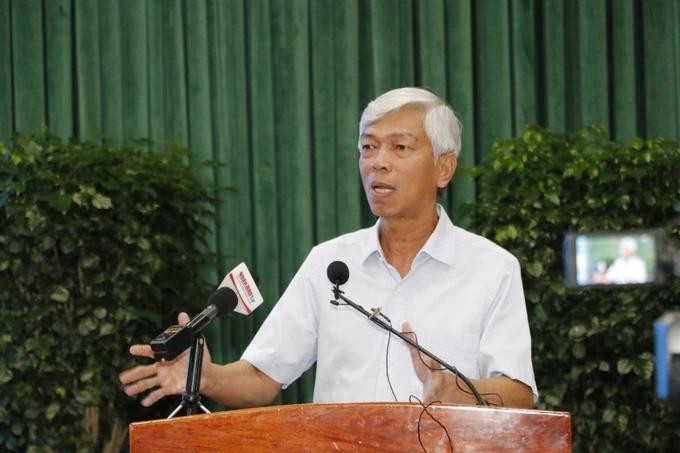
Furthermore, the ward has continued to advocate for the district to present to the relevant authorities a proposal for the arrangement of cadres and civil servants, ensuring that these decisions are made with careful consideration and that professional roles are adequately addressed.
According to Deputy Director Nguyen Thi Hong Tham of the Ho Chi Minh City Department of Home Affairs, the draft plan to implement the Resolution 1278 involves a two-phase process to organize the administrative apparatus and transfer facilities in 41 new wards.
Vice Chairman of the Ho Chi Minh City People's Committee Vo Van Hoan underscored that the reorganization of administrative units constitutes a significant policy initiative of both the Party and the State. Ho Chi Minh City is required to finalize this reorganization by December 31, 2024, with the new administrative structure set to commence operations on January 1, 2025. The time remaining for this arrangement is limited, while the volume of work involved is substantial.
The Vice Chairman of the Ho Chi Minh City People's Committee urgently proposed implementing the arrangement with seriousness and in full compliance with all relevant procedures, regulations, and instructions.
Vice Chairman Vo Van Hoan of the Ho Chi Minh City People's Committee affirmed that the city has no plans to change all citizens' documents at this time. Instead, the city will only make changes when residents request it, emphasizing the importance of protecting people's rights.
Simultaneously, there will be no charges imposed on individuals for the modification of information. The process should foster a strong consensus and unity among officials, party members, and the public, while minimizing any disruptions that could impact the lives, activities, production, and business operations of both organizations and individuals.
To prevent waste, Vice Chairman Vo Van Hoan proposed efficiently arranging, managing, and utilizing the city's facilities and administrative buildings during the implementation process, rather than leaving them abandoned or empty.
In addition, after reorganizing the wards, there will be a surplus of 1,022 officials, civil servants, public employees, and non-professional workers. Priority will be given to placing these surplus personnel within the local area. If qualified officials exceed the local quota, they will be recommended and nominated to higher-level agencies. Ho Chi Minh City plans to implement various policies to support and accommodate the surplus civil servants.
